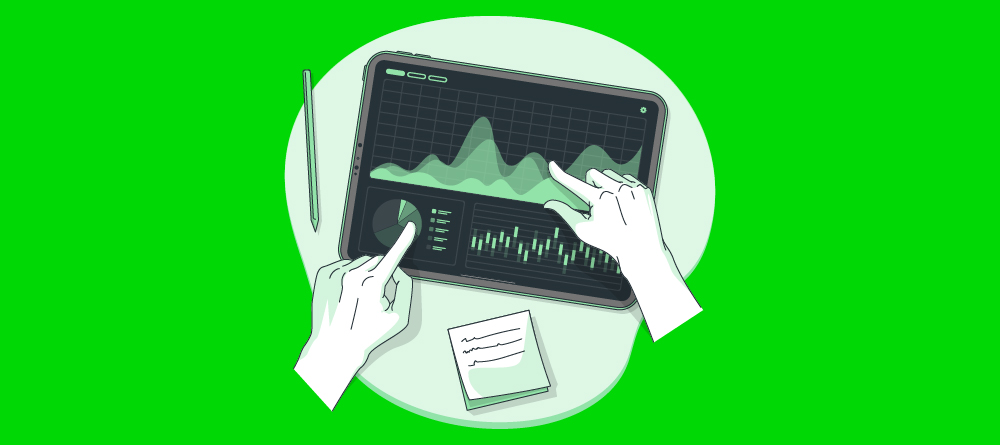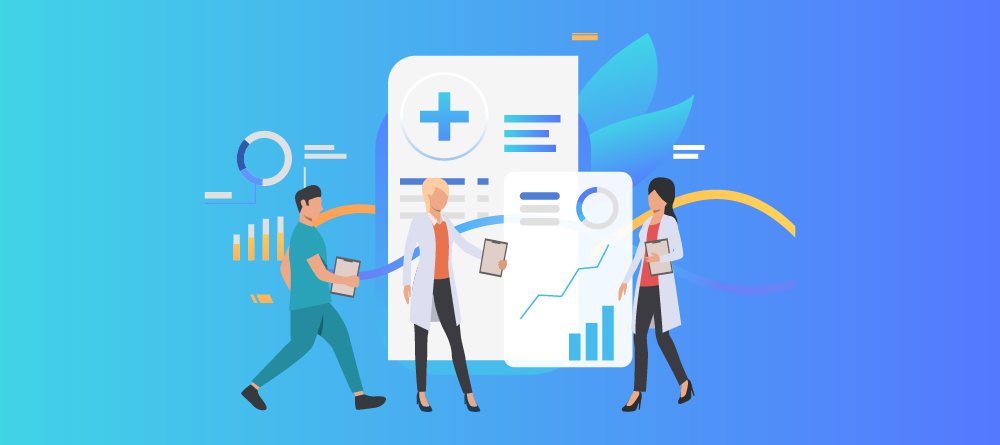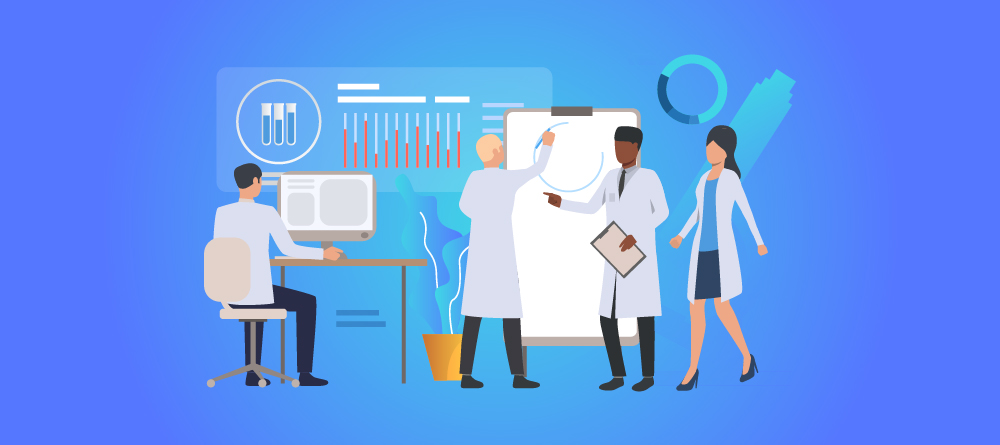How Prescriptive Analytics is benefiting Healthcare industry

Share This Article
Table of Contents
Subscribe to Our Blog
We're committed to your privacy. SayOne uses the information you provide to us to contact you about our relevant content, products, and services. check out our privacy policy.
What is Predictive Analytics?
Prescriptive Analytics and Predictive Analytics both deal with the future. Based on your business data, the former gives you information on what is going to happen, and the latter takes it a step further by recommending actions to change or improve the outcome of the event. Healthcare providers are leveraging data science and business analytics tools to drive their clinical, administrative, and financial operations. For instance, funeral services and other healthcare-related services are increasingly utilizing predictive analytics to forecast resource needs.Data Analytics is helping healthcare providers with clinical applications like risk scoring for chronic diseases, avoiding patient readmission, drug compatibility for patients, etc.
Most of the healthcare service providers do not know the clear difference between Prescriptive and Predictive Analytics, and this holds them from deciding which among the two is most beneficial for their business and patients.

Predictive Analytics processes your historical data using a machine learning model that looks for trends and relationships between various data sets. When you apply your current data with this model, it predicts (based on your past data) what will happen in the future. For example, based on the pattern of diagnosis, hospitals can predict the rate at which a disease is spreading.
Also Read: How Predictive Analytics is creating risk-free businesses.
What is Prescriptive Analytics?

Prescriptive Analytics takes Predictive Analytics one step ahead. It gives you actionable insights on how you can alter or improve the outcome of what is going to happen next. Prescriptive Analytics helps you make informed decisions and have better command over your current actions to improve future outcomes. For example, based on the pattern of diagnosis, hospitals can predict the rate at which the disease is spreading, and prescriptive analytics can suggest to increase the number of beds to accommodate future patients.
Read more: Predict the future of your business with Predictive Analytics
Benefits of Prescriptive Analytics for Healthcare providers

The Healthcare industry is undergoing a shift to deliver value-based services to its patients; and Prescriptive Analytics is the technology that can help them fill the gap between information and decision that drives their business.
Reduced Operating Cost
The administrative and financial operations can be optimized based on what is going to happen in the future. Predictive Analytics tools give actionable insights on budgeting, accurate business planning, avoid excess staffing levels, right capacity requirements, inventory management, etc. It not only reduces the operational costs for the hospital but also significantly brings down the hospital bills for the patient.
Improved Care
Clinical decision making based on intuitions can sometimes have less favorable consequences. Prescriptive Analytics with machine learning can give data-backed insights to make clinical decisions that are critical to the health and treatment of the patient. Advanced genome studies, together with big-data are playing a critical role in the development of precision therapies.
Data Security
With a surge in the usage of wearable activity and health tracking devices, a significant amount of usable user data is being generated and is being used for clinical diagnostic purposes. The same goes for valuable clinical and diagnostic records of patients that are highly prone to cybersecurity attacks. Prescriptive Analytics and machine learning tools can provide your data with a primary barrier of security.
Also read: 5 real-life revolutionary use cases of Predictive Analytics
The future of Healthcare with Prescriptive Analytics

Integrating big data and machine learning is opening new avenues for better treatment plans based on similar patient conditions and medical history. Healthcare providers can move into a direction where they can use patient data and analytics to deliver personalized care and treatment. Prescriptive Analytics offers a great opportunity to provide better treatment, take accurate clinical decisions, and make healthcare services and products more affordable for the patients.
Call us at SayOne today!
If not sure how you can integrate your data with Prescriptive Analytics, get in touch for a FREE consultation.
Share This Article
FAQs
Prescriptive Analytics is a data-driven approach that leverages advanced algorithms and machine learning to analyze historical and real-time healthcare data. It goes beyond descriptive and predictive analytics by not only predicting future outcomes but also recommending the best course of action to achieve desired outcomes. In healthcare, this means using patient data, medical histories, and other relevant information to provide actionable insights for medical practitioners and administrators.
Prescriptive Analytics offers several benefits to the healthcare industry: Personalized Treatment Plans: By analyzing patient data, medical history, and genetic information, Prescriptive Analytics helps healthcare providers create tailored treatment plans, optimizing medication regimens and interventions for individual patients. Resource Allocation: Healthcare facilities can optimize resource allocation by predicting patient admission rates, identifying peak periods, and suggesting staffing levels, ensuring efficient utilization of staff, beds, and equipment. Reduced Medical Errors: By recommending evidence-based treatment options, Prescriptive Analytics assists healthcare professionals in making informed decisions, reducing the risk of medical errors and improving patient safety.
Prescriptive Analytics contributes to better patient outcomes in several ways: Early Disease Detection: By analyzing patient data and trends, Prescriptive Analytics can detect early signs of diseases, enabling timely intervention and improving the chances of successful treatment. Optimized Interventions: For chronic conditions, the technology helps in identifying the most effective interventions for patients based on their medical history and responses to previous treatments. Medication Adherence: By analyzing patient behavior and historical data, Prescriptive Analytics can predict non-adherence to medication regimens. This allows healthcare providers to intervene with targeted interventions and support to improve patient compliance. In summary, Prescriptive Analytics in the healthcare industry goes beyond prediction and provides actionable recommendations for personalized treatments, efficient resource allocation, and enhanced patient outcomes. It empowers healthcare professionals to make well-informed decisions and ultimately improves the quality of care provided to patients.
Subscribe to Our Blog
We're committed to your privacy. SayOne uses the information you provide to us to contact you about our relevant content, products, and services. check out our privacy policy.




